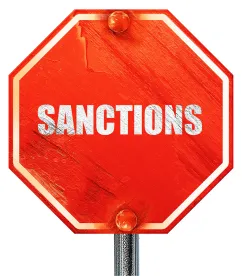Last week, the U.S. Department of the Treasury’s Office of Foreign Assets Control (OFAC) announced its assessment of a $2 million civil money penalty against ExxonMobil for alleged egregious violations of the Ukraine-Related Sanctions Regulations. According to OFAC, the violations arise from May 2014 dealings ExxonMobil had with Igor Sechin, in his official capacity as the President of Rosneft OAO. OFAC has previously addressed the sanctions compliance risk arising from entering into contracts in which designated individuals bind undesignated entities, but the agency had not previously punished a company under that scenario.
OFAC designated Sechin in April 2014 under one of the Ukraine/Russia blocking authorities. As of the date of his designation, OFAC generally prohibited U.S. companies from transacting or dealing with Sechin. U.S. companies were not prohibited, however, from all dealings with Rosneft. The Russian state-owned oil company is subject to restrictions involving certain debt and Russian oil projects, but unlike Sechin, the company is not blocked.
While OFAC separately defines the prohibitions applicable in each if its sanctions programs, economic sanctions regulations generally prohibit transacting or dealing with blocked individuals. For example, Executive Order 13661 and § 589.201 of the Ukraine-Related Sanctions Regulations prohibit companies from both dealing with property of designated individuals and providing or receiving services to or from those persons. ExxonMobil filed a civil complaint in the Northern District of Texas concurrently with the penalty announcement, which challenges OFAC’s determination that it received prohibited services from Sechin.
OFAC’s aggressive use of its enforcement authority in this matter follows several questionable designations over the past year and further reflects a significant diminution in the deterrence effect of litigation risk. OFAC does not appear concerned that the Department of Justice Federal Programs Branch trial attorneys defending these actions will face a judiciary that is increasingly unwilling to grant the agency unlimited deference.



 />i
/>i

